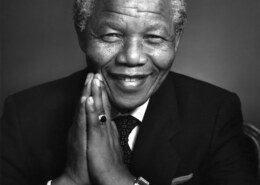“I see democracy as a system that affords the weak and the powerful equal opportunities.” Gandhi Mahatma (150 words)
Kautilya's teachings in the Arthashastra (4th century BCE) remain relevant to public services in 21st century India, including: 1. *Good Governance*: Efficient, corruption-free, and citizen-centric administration. 2. *Welfare State*: Prioritizing citizens' well-being and social welfare. 3. *EconomicRead more
Kautilya’s teachings in the Arthashastra (4th century BCE) remain relevant to public services in 21st century India, including:
1. *Good Governance*: Efficient, corruption-free, and citizen-centric administration.
2. *Welfare State*: Prioritizing citizens’ well-being and social welfare.
3. *Economic Development*: Encouraging trade, commerce, and economic growth.
4. *Strategic Decision-Making*: Analyzing, planning, and executing effective policies.
5. *Ethical Governance*: Upholding integrity, transparency, and accountability.
6. *Effective Leadership*: Visionary, communicative, and motivational leadership.
7. *Administrative Reforms*: Decentralization, accountability, and efficient public services.
8. *Public-Private Partnerships*: Collaborative development initiatives.
9. *Human Resource Management*: Merit-based recruitment, training, and motivation.
10. *Disaster Management*: Preparedness, response, and mitigation strategies.
11. *Diplomacy and International Relations*: Strategic diplomacy and global cooperation.
12. *Security and Law Enforcement*: Effective policing, law enforcement, and national security.
Kautilya’s teachings offer valuable insights for public services in India, emphasizing efficient governance, citizen welfare, and sustainable development.
See less

Answer: Mahatma Gandhi was in favor of a stateless society in which life becomes perfect, people never become hindrances to one one-other's routines, and; self-regulation, self-dependency, and mutual cooperation become essential in day-to-day human practices. Given the issues in trying to create sucRead more
Answer: Mahatma Gandhi was in favor of a stateless society in which life becomes perfect, people never become hindrances to one one-other’s routines, and; self-regulation, self-dependency, and mutual cooperation become essential in day-to-day human practices. Given the issues in trying to create such an order, he supported and advocated democracy. Accepting democracy to be a great institution, Gandhiji laid stress on decreasing the possibility of its misuse. He called for its constant development on the basis of high human values.
Therefore, morality occupies a central place in Gandhi’s conception of democracy. It develops a sense of responsibility in human beings on the strength of which they go forward to protect, respect, and honour the rights of each other. Significance of the given quote in contemporary period In a democracy, we often observe that the rights of the weak are sometimes not honoured. For instance:
The remedy, therefore, is not avoidance of democracy but its constant development.
See less